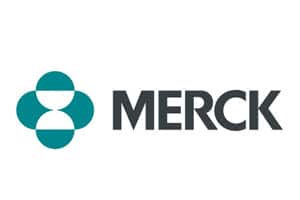 Merck & Co has signed another deal to explore a combination of its PD-1 inhibitor Keytruda with other anticancer drugs, this time forging an alliance with Japan’s Eisai.
Merck & Co has signed another deal to explore a combination of its PD-1 inhibitor Keytruda with other anticancer drugs, this time forging an alliance with Japan’s Eisai.
Under the terms of the agreement, Keytruda (pembrolizumab) will be tested alongside Eisai’s recently approved thyroid cancer drug Lenvima (lenvatinib) and well-established breast cancer therapy Halaven (eribulin) in multiple tumour types.
The panned studies include phase Ib/II trials of Keytruda/Lenvima in solid tumours and Keytruda/Halaven in triple-negative breast cancer, a patient group with few treatment options. The studies are due to start later this year.
The PD-1 or checkpoint inhibitor class – which along with Keytruda includes Opdivo (nivolumab) from Bristol-Myers Squibb (BMS) as well as clinical-stage candidates from Roche, Merck KGaA/Pfizer and AstraZeneca (AZ) – is expected to reach $10bn to $15bn in sales thanks to widespread use in combination with other anticancer drugs.
Immunotherapies such as Keytruda seem to be effective in a broad range of cancers because they address underlying immune mechanisms, and there is a lot of excitement about combining them with other drugs to improve the efficacy and durability of their effects.
“Cancer is a complex disease that often requires different approaches to help patients achieve the best possible outcome,” said Eric Rubin, head of Merck’s late-stage development group for cancer drugs.
That has prompted a frenzy of deal making. In addition to the latest agreement with Eisai, Merck has earlier deals in place with Eli Lilly as well as Pfizer, Amgen and Incyte, while the other PD-1 inhibitor developers have also signed off on a number of development alliances in recent months.
Meanwhile, Merck has also been bolstering its immuno-oncology pipeline with licensing and acquisitions, such as the $375m purchase of OncoEthix and a partnership with Enumeral Biomedical last December.
Keytruda is widely regarded as the brightest prospect in Merck’s pipeline, and has got off to a promising start. The drug brought in $50m in sales in the fourth quarter of 2014 following its approval in early-September in the US for melanoma, with around 2,000 patients receiving the drug in December.
It is also scheduled to be filed for approval in the much-larger lung cancer population later this year, although rival Opdivo has already been approved for this indication.




